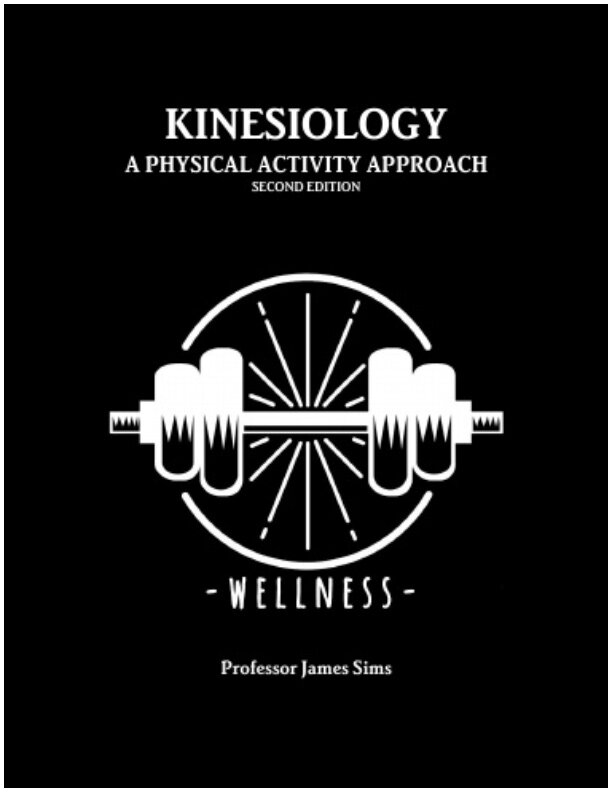The Mind: Education
Understand professionalism at all times with all students, staff, peers, and the community.
Demonstrate a commitment excellence towards academics
Recognize the need for interaction with individuals and groups in and outside the school or district
WHAT IS KINESIOLOGY?
Kinesiology is defined as the scientific study of human or non-human body movements. In the arena of physical fitness, Kinesiology is adapted through exercise to improve exercise routines for all individuals.
KINESIOLOGY WORKBOOK DESCRIPTION
This Kinesiology workbook has a focus on specific levels of exercise routines for the young adult, middle age, seniors and athletes. It was designed for individuals who are seeking fitness for life, weight loss, body tone, strength gains, and muscle mass. All body types will be able to apply new exercise routines using the 5 components of physical fitness and the F.I.T.T. Principle. The workbook also emphasizes the importance of blending a good daily nutrition plan into your exercise routine.
BACKGROUND
James Sims is a full-time Professor of Health & Kinesiology at Los Angeles Valley College. I have been teaching for 33 years. My teaching background includes the following: Human Anatomy, Human Physiology, Biology, Kinesiology, Chemistry, Physics, Nutrition, Fitness for Life both Young and Old, Strength & Conditioning, Cross Fit-Training, and Body Building. After I retired from coaching football at LA Valley College in 2013, I decided to become reunited with my saxophones and music. My favorite classroom moment is to see a student learn and become more enlightened about a new subject. "SUCCESS IS WHEN PREPARATION MEETS OPPORTUNITY".
KINESIOLOGY & THE MIND
Our Goal every day is to create a mental awareness in the area of Kinesiology and Nutrition. This awareness will assist individuals to live a balanced life each day. Once our mind establishes a mental focus towards achievable fitness goals, we can plan healthier eating habits in conjunction with sustainable workout routines. This does not imply quick nutritional fixes or instant behavioral turnarounds by using bad diet plans, instead it establishes various levels of fitness through “measurements and assessments” and learning how to incorporate nutrition into a fitness plan.
Individuals can take advantage of the following benefits by just starting up a good exercise routine.
1. Better Sleep – exercise will help the body to relax and enhance your sleep.
2. Improve Thinking Processes – exercise increases the flow of oxygen creating a clearer mind, better memory, and a sharper focus.
3. Improves Mood and Relieve Stress – exercise releases endorphin (chemicals released into your body triggering a positive feeling) which helps with mood, stress, and tension.
THE IMPORTANCE OF KINESIOLOGY – “A HEALTHIER YOU”
As we advance in age strong muscles, contribute to healthy bones and joints by promoting healthy remodeling of bones. Individuals who have strong muscles and continue to workout and maintain muscular strength tend to age slowly. Their risk of developing fractures, osteoporosis or other defects of bone mineral density decrease. If we have certain medical conditions, promoting muscle mass may decrease the progression of illness. Enhancing muscular strength with exercise can benefit diabetes significantly. Research and clinical data indicate that diabetics who strength train respond better to insulin, improve blood sugar levels, lose weight, and lower the risk for heart disease. When partnered with cardiovascular exercises, muscular strength and resistance exercises decrease the possibility of cardiovascular diseases. People who have an excellent muscular strength program are less likely to develop hypertension, a high concentration of fats or lipids in the blood, promote better breathing functions, and prevent the development of constipation.


